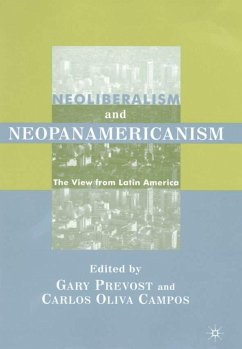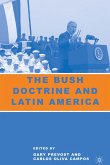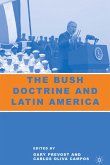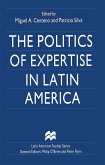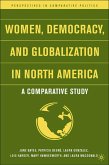In this edited volume fourteen scholars, mostly from Latin America, analyze the current state of relations between North America and Latin America in a number of sectors--economic, security, politics, and the environment. Particular attention is paid to processes of economic integration that dominated political discussions during the decade of the 1990s - North American Free Trade Agreement (NAFTA), MERCOSUR, the Free Trade Agreement of the Americas (FTAA). Because most of the scholars are from Latin America, the book has a perspective that is often lacking in books on similar scholars written almost exclusively by scholars from the U.S.
Hinweis: Dieser Artikel kann nur an eine deutsche Lieferadresse ausgeliefert werden.
Hinweis: Dieser Artikel kann nur an eine deutsche Lieferadresse ausgeliefert werden.
'Both the theoretical and empirical discussions and the depth of the debate presented in it make this an important book for everyone interested in US-Latin American relations and in current problems and issues affecting the region. The book not only represents a 'view from the region' but also advocates the development of other models of economic and social development, which offer an alternative and encourage a counter-movement to neopanamericanism. That makes Neoliberalism and Neopanamericanism a timely contribution to the emerging debate about a post-Washington Consensus regime in relation to the future policies of development in the Americas.' - Marc Schelhase, International Affairs

